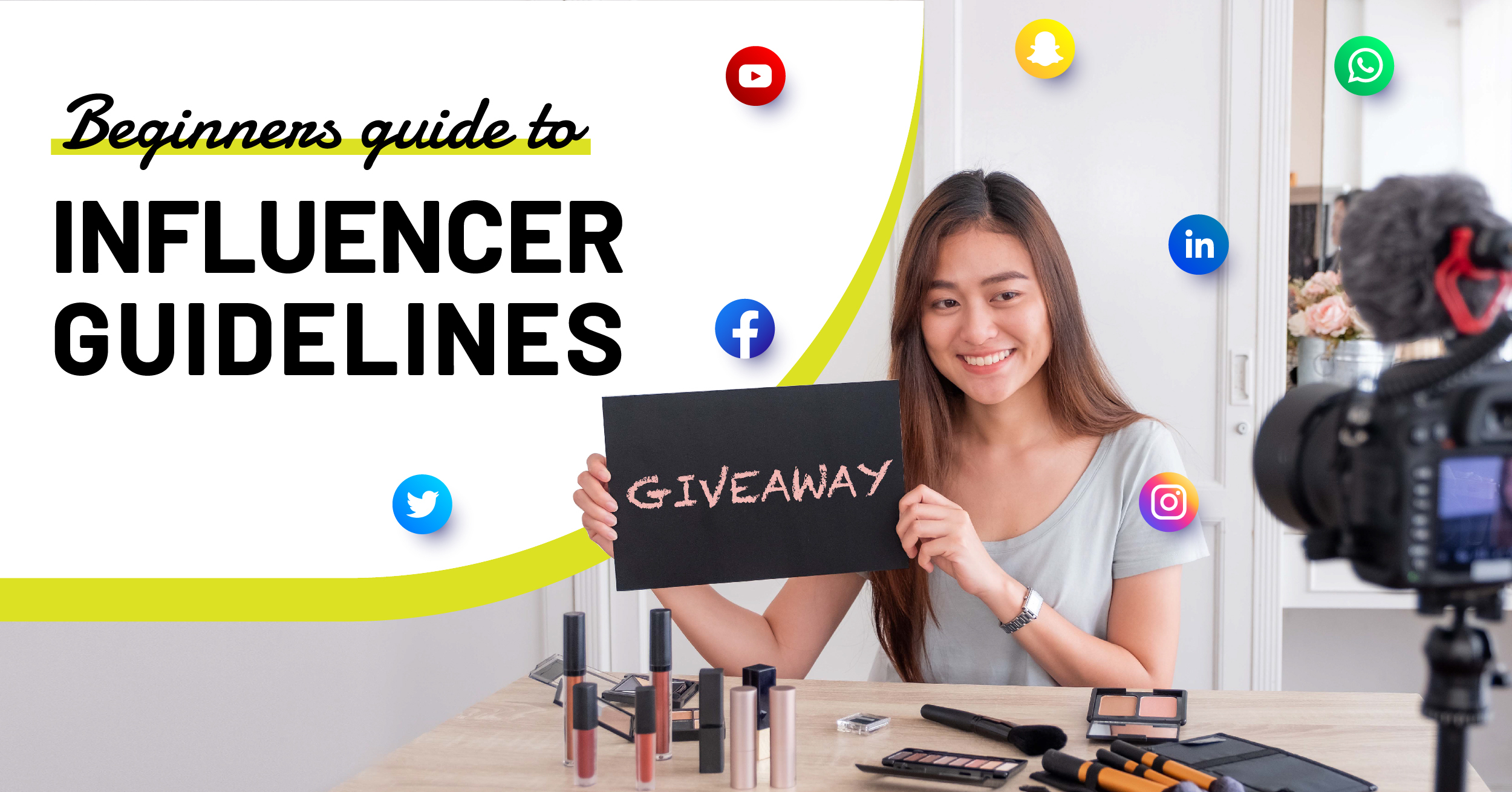
Beginners guide to influencer guidelines
Beginners guide to influencer guidelines
Whether you are an #influencer or a brand looking to engage them as part of your digital marketing strategy, there is no denying that influencer marketing is here to stay! While we all dream of giving up our 9-5 to become a travel vlogger, or look lovingly at our pets and cinch brand endorsements, the new Advertising Standards Council of India (ASCI) guidelines are here to make you reconsider your wistful fantasies.
Why has it been introduced?
The guidelines have been introduced to give customers a higher level of transparency, help them navigate through digital advertising, and make informed purchasing decisions. The list is all encompassing, and includes different directions for each platform. For example, if an influencer is putting out a reel with paid promotion, the tag must appear in the first five seconds of the reel. Static posts on Facebook and Instagram, on the other hand, must have a hashtag with #paidpromotion or #ad that should appear above the fold (above the see more option).
When it comes to the gamut of advertisements in traditional media, consumers are well-versed with creative license that brands leverage – whether it is an ad on TV or a jingle on the radio. We can always tell when our idol is sponsoring a product.
When it comes to social media, however, the lines get pretty blurry, pretty quickly. While most of us know an influencer when we see one, we can’t always tell if they are simply informing us about their purchases and habits, or if they are subliminally selling a product/service. In all fairness, some influencers are also known to promote only brands they believe in even if they are paid to do so. But the onus shouldn’t rest on us to know everything about an influencer’s practices.
The ASCI is here to protect consumers by clearing the air. From June 2021, all influencers that receive any benefit – monetary or in kind – have to declare that it is a paid promotion. This move was introduced to increase transparency and give customers the power to make better purchasing decisions. But what does this mean for influencers?
The influencer mandate
Since the guidelines have come into effect from June 2021, influencers need to declare any and all types of brand promotion. This could include:
- Money paid to promote brands
- Money paid to run contests
- Affiliate links where the influencer receives a commission
- Money paid to create content
- Free gift baskets/hampers
- Free hotel stays
- Free meals
This by no means is an exhaustive list, and there are likely to be more additions to this in time to come. We will update this blog with any additional information we receive, so be sure to save this post and keep coming back for more! You can also keep an eye out for our socials which will give you information as and when we have any.
Most platforms now come with a ‘paid promotion’ label, which you may have already seen if you are a content creator, we have broken it down in this infographic for better understanding. Save this for later!

The recent changes
Since the introduction of the guidelines in June, the ASCI has given influencers three months to implement the guidelines in their regular content. Simultaneously, the Council has on boarded Aditya Swamy, Director, Google and Sandeep Bhushan, Head of India Global Marketing Solutions, Facebook to make compliance from influencers more stringent.
It is likely that there will be stronger guidelines in place that will flag users or brands for non-compliance. The consequences of violations could include – account suspension, stoppage of ads on different platforms, or even restricting a content creator or brand’s ability to upload fresh content.
We certainly don’t want that! And neither does the ASCI. Which is why they have introduced a Disclosure Assist Tool that will help content creators and brands navigate through what they need to declare. All you have to do is upload the piece of content on the tool and it will generate a report of the types of promotion you will need to declare. This makes it significantly easier for content creators to navigate the guidelines, and add authenticity to their content. There are several more tools in the works, we will keep you updated on them as and when we have more information. Watch this space for everything you need to know about digital marketing!


0 comment